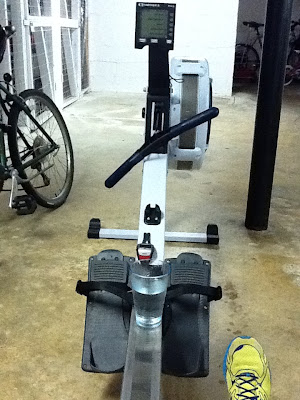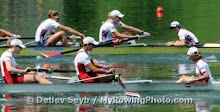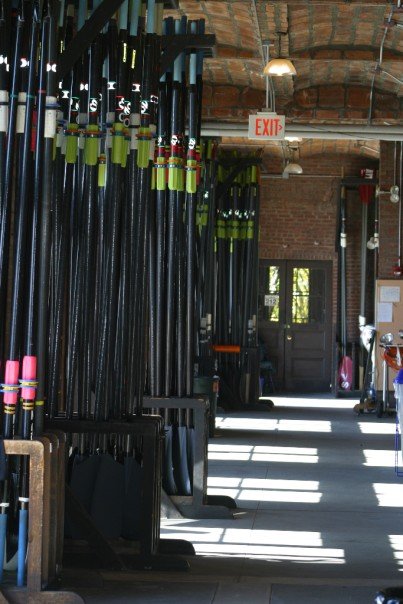 |
| Staying hydrated is key to performing at your best. |
 |
| Delicious, delicious glass of water. It's erg puddle season! |
 |
| Hydration aids like Nuun, Powerade, and Gatorade are all great tools. |
Second, hydration is ESPECIALLY critical DURING PRACTICE. You can see and feel your sweat, but you're also losing water through breathing. When it is this hot out, using hydration products is essential. I am a big fan of Nuun, but other products, like Powerade and Gatorade, and DIY methods (recipe below) will also keep you powering through long, sweaty practices.
 |
| If your workout runs over 75', a small electrolyte boost from gels or chews can make a big difference. |
When rowing for at least 60', I bring something more hydrating than just water, and for practices longer than 75', I usually bring an additional hydration tool such as electrolyte-enhanced chews or gel. My favorites are Margarita flavored Clif Shot Bloks and Just Plain flavored Gu, but there are many, many products on the market to choose from!
 |
| Everything you need for a tasty, electrolyte replacement sports drink! |
DIY Electrolyte Drink
Makes 1 Nalgene full (~32 oz/1L)
1/2 c orange juice (ideally not from concentrate--the fresh stuff has the most potassium!)
1/8 c lemon juice (ditto)
1 tsp sea salt
1 tsp baking soda (optional)
Place all ingredients in your water bottle, stir, then fill to the top with water. Make this just before practice as the one downside to DIY is that letting this sit in the sun for hours can make it go bad. If you find yourself short on OJ and lemon juice, you can also substitute things like an Emergen-C drink powder packet or two, or a tart, strong juice like Cheribundi. If you do substitute, you may want to add 1/2 teaspoon of a potassium-based salt replacer like Morton Lite Salt or Morton Salt Substitute.
 |
| Stretching after practice is a great time to finish your workout hydration targets. |
Finally, remember that hydration is also about timing. As they say...if you're thirsty, you're already dehydrated, so keep on top of your fluid and salt intake. A good goal is to head into practice having had at least 8-16 ounces of fluid within the hour before you start, and aiming for around 8-10 ounces of fluid every 15 minutes you spend actually rowing. Within the 30-minute window after practice, try to take in the balance of fluid if you missed any during practice, plus another 8-16 ounces, along with your normal refueling snack.
 |
| 80 minutes of active rowing in a workout means half a 32-oz bottle before, two bottles during, and the remaining half after. |
If you still feel like you're bonking, try adding a few shakes of salt to your meals and the fluid you bring to practice. You won't notice a small amount of salt in your morning oatmeal, but it will make a huge difference!
 |
| It's never too early to start hydrating! |
If you have any other hydration tips, post them in the comments below. Keep training and racing hard, and Go USA!

















